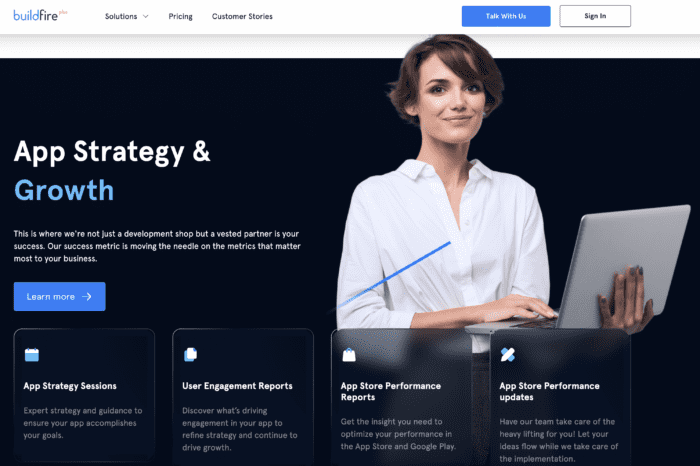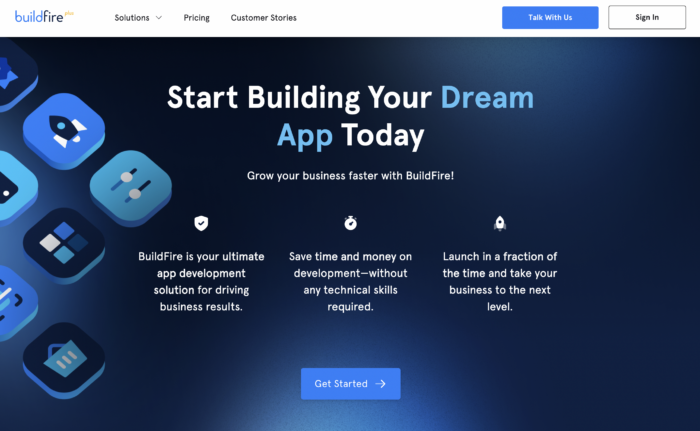Software Development Outsourcing: The Ultimate Guide

Software development outsourcing is a common practice for organizations looking to build custom software—including mobile apps. Outsourcing mobile app development can bring a lot of benefits, such as access to specialized expertise and cost savings.
This ultimate guide covers everything from understanding what outsourcing is, to finding the right outsourcing partner and managing an outsourced mobile app development project.
By the end of this post, you’ll have a solid understanding of what outsourcing mobile app development entails and be equipped with the knowledge to make informed decisions about whether outsourcing is right for your business.
What is Software Development Outsourcing?
Software development outsourcing refers to the practice of hiring an external company, agency, or contractor to handle the software development process. This arrangement is typically used when a business lacks the internal resources or expertise to develop a custom software solution, such as a mobile app.
By outsourcing the development process, businesses can access the specialized skills and knowledge they need to bring their software vision to life. This can include everything from conceptualization and design to coding, testing, and deployment.
Outsourcing mobile app development can bring a variety of benefits, such as access to specialized expertise, cost savings, and increased speed to market.
It’s worth noting that outsourcing is just one of several options for businesses looking to develop a mobile app. Other options include developing the app in-house or using a no-code/low-code development platform. The best option for your business will depend on your specific needs, goals, and budget.
Advantages and Disadvantages of Outsourcing
The top benefits of outsourcing mobile app development include:
- Access to specialized skills and expertise
- More affordable than in-house development
- Faster development times
- Ability to focus on core business activities
- Flexibility with resource allocation
It’s worth noting that certain outsourcing solutions come with some drawbacks, such as:
- Reduced control over the development process
- Potential language or cultural barriers
- Concerns around data security and intellectual property
- Challenges in communication and collaboration
- Risk of project failure
When outsourcing mobile app development, it’s important to carefully weigh the pros and cons to determine whether outsourcing is the right choice for your business.
To minimize the risks associated with outsourcing, it’s crucial to choose a reputable and experienced outsourcing partner and to establish clear lines of communication and collaboration from day one. This will alleviate any concerns you have with the potential drawbacks listed above.


When to Consider Outsourcing Software Development
There are several scenarios where outsourcing mobile app development might be a good choice for businesses. For example:
- Outsourcing can provide access to the necessary skills and knowledge if your business lacks in-house expertise in mobile app development,
- If your business has a tight deadline and needs to get to market quickly, outsourcing can help speed up the process.
- Software development outsourcing can offer cost savings compared to developing a mobile app in-house—helping you keep costs low and stay under budget.
- If your business is looking to focus on other core business activities, outsourcing the mobile app development process can free up internal resources and allow you to focus on what you do best.
Outsourcing is not always the best choice for every business. Some businesses may prefer to develop their mobile app in-house in order to retain greater control over the development process or to ensure that the app is developed to their specific requirements.
When deciding whether to outsource mobile app development, it’s crucial to carefully consider your business goals and resources. By weighing the pros and cons of outsourcing, businesses can make an informed decision about whether outsourcing is the right choice for their needs.
Types of Outsourcing Arrangements
Businesses have multiple options for outsourcing mobile app development, including the following common arrangements:
- Full-service outsourcing: An external company is responsible for handling all aspects of the mobile app development process, from design to coding, testing, and deployment.
- Partial outsourcing: A third party just handles specific aspects of the mobile app development process, such as coding or testing.
- Time-and-materials outsourcing: In this arrangement, an agency is paid based on the number of hours worked or the materials used during the mobile app development process.
- Fixed-price outsourcing: As the name implies, the outsourced company is paid a fixed fee for delivering a specific set of deliverables or for completing the entire mobile app development process.
When considering outsourcing arrangements, it’s important to choose one that aligns with your business goals, budget, and timeline.


Full-service outsourcing can be a good choice for businesses that lack in-house expertise or resources, while partial outsourcing can be a good choice for businesses that need help with specific aspects of the mobile app development process. Time-and-materials outsourcing can be a good choice for businesses that need flexibility, while fixed-price outsourcing can be a good choice for businesses that need certainty and stability in their budgeting and planning.
By carefully considering their options and choosing a reputable and experienced outsourcing partner, businesses can ensure a successful outcome and achieve their mobile app development goals.
Choosing the Right Outsourcing Partner
Choosing the right outsourcing partner is crucial for ensuring a successful outcome when outsourcing mobile app development. There are several key considerations to take into account when choosing an outsourcing partner, including:
- Experience and expertise: It’s important to choose an outsourcing partner with a proven track record of developing high-quality mobile apps that meet the specific needs of their clients. Consider the outsourcing partner’s portfolio, case studies, and testimonials to get a sense of their expertise and experience.
- Communication and collaboration: Good communication and collaboration are key to a successful outsourcing relationship. Choose an outsourcing partner that is responsive, transparent, and easy to work with.
- Process and methodology: Consider the outsourcing partner’s development process and methodology to ensure that they are a good fit for your specific needs.
- Location and culture: Choose an outsourcing partner that is located in a time zone that is convenient for your business and that has a culture that aligns with your business values and goals.
BuildFire’s Approach to Mobile App Development
BuildFire’s approach to mobile app development is focused on delivering value to the client at each step of the way. This approach is characterized by the following elements:
- Discovery and planning: BuildFire starts by working with the client to understand their specific needs and goals to develop a detailed plan for the mobile app development process.
- Design and development: BuildFire then uses its expertise and experience to design and develop a high-quality mobile app that meets the client’s needs. This includes the design and deployment of the app.
- Ongoing support and maintenance: After the mobile app is launched, BuildFire provides ongoing support and maintenance to ensure that the app continues to perform optimally and to meet the changing needs of the client.
By following this approach, BuildFire is able to deliver high-quality mobile apps that meet the specific needs of its clients. The ongoing support and maintenance to ensure that the app continues to perform optimally over time.
BuildFire takes the time to understand your business goals to ensure the app is aligned with the success of your company.


Importance of Conducting Due Diligence to Find the Right Outsourcing Partner
It is critical to conduct thorough due diligence when choosing an outsourcing partner for mobile app development.
This involves taking the time to research and evaluate potential partners to ensure that they are a good fit for your business and your specific needs. Some key elements of conducting due diligence include:
- Reviewing the outsourcing partner’s portfolio, case studies, and testimonials to get a sense of their expertise and experience.
- Speaking with references or past clients to get a first-hand account of their experience working with the outsourcing partner.
- Asking the outsourcing partner to provide detailed information about their development process and methodology, including how they approach project management, testing, and quality assurance.
- Requesting a detailed proposal or quote from the outsourcing partner, including the scope of work, timeline, and budget.
- Negotiating terms and conditions, including payment terms, Intellectual Property (IP) ownership, and ongoing support and maintenance.
With the right due diligence, businesses can increase the chances of a successful outcome when outsourcing mobile app development and can ensure that they choose an outsourcing partner that is a good fit for their specific needs and goals.
Preparing for Outsourced Software Development
A successful outsourcing project starts with effective preparation. There are several key steps businesses can take to prepare for outsourced mobile app development, including:
Define the Project Requirements
Before outsourcing mobile app development, it is important to have a clear understanding of what you want the end product to look like, as well as the specific features and functionality that are required. This includes defining the target audience, identifying key user personas, and outlining the user journey.
Create a Project Plan
A comprehensive project plan is an essential component of any successful outsourcing project. This includes defining the project scope, timeline, budget, and key milestones. Having a project plan in place helps to keep the project on track and enables businesses to identify and address any potential issues or risks before they arise.
Build a Strong Communication Plan
Effective communication is key to a successful outsourcing project. Establish a clear understanding of expectations, including regular check-ins and status updates, to ensure that everyone involved in the project is on the same page.
Setting Expectations With The Outsourcing Partner
Setting clear and realistic expectations with the outsourcing partner is crucial for the success of the project. Some key considerations include:
- Defining the project scope and timeline, including the specific features and functionality required and any deadlines or milestones.
- Establishing communication protocols and processes, including regular check-ins, status updates, and reporting mechanisms.
- Discussing and agreeing on the payment terms, including the budget, payment schedule, and any penalties for delays or changes to the scope of work.
- Establishing the Intellectual Property (IP) ownership, including who will own the code and any other outputs of the project and how this will be managed.
- Agreeing on the ongoing support and maintenance requirements, including any warranties, bug fixes, and other post-deployment services.
By setting clear expectations with the outsourcing partner, businesses can reduce the risk of misunderstandings, delays, or other issues, and increase the chances of a successful outcome.
When you’re ready to start your mobile app development project, consider partnering with BuildFire. As a leader in outsourced app development, we’ll bring your vision to life.


Importance of Good Project Management
Good project management is a critical factor in ensuring the success of any outsourced mobile app development project. Here’s why:
- Improved Visibility and Control — Good project management provides businesses with improved visibility into the progress of the project, including the status of key tasks, deadlines, and milestones. This allows businesses to make informed decisions and take corrective action if necessary to keep the project on track.
- Increased Efficiency and Productivity — By using effective project management processes and tools, businesses can streamline workflows and reduce the risk of duplication or waste. This helps to increase efficiency and productivity and reduces the project’s overall time and cost.
- Better Communication and Collaboration — Good project management helps to facilitate better communication and collaboration between all stakeholders, including the outsourcing partner, internal teams, and any external stakeholders. This helps to ensure that everyone is aligned on the project goals and objectives. It also helps resolve any issues or conflicts in a timely and effective manner.
By taking a proactive approach to project management, businesses can increase their chances of a successful outcome in a timely and cost-effective manner.
Best Practices for Managing an Outsourced Software Development Project
Use the following guidelines as a checklist as you’re preparing and going through your next outsourced development project:
- Clearly define project scope and timeline, including specific features, deadlines, and milestones, to ensure that everyone is aligned on what needs to be achieved.
- Establish regular check-ins, status updates, and reporting mechanisms to ensure that everyone is informed of the project’s progress.
- Clearly define roles and responsibilities to ensure everyone involved in the project knows their role and what they are responsible for.
- Use project management tools to streamline workflows and improve visibility into the project’s progress.
- Set realistic expectations for the project scope, timeline, and budget, to reduce the risk of misunderstandings or disappointment.
- Foster a culture of transparency where everyone involved in the project feels comfortable sharing information, ideas, and concerns.
- Continuously evaluate and adjust the project plan as needed to ensure that the project stays on track and delivers the desired outcomes.
- Celebrate successes along the way, and use failures as an opportunity to learn and improve for the future.
These best practices can help businesses increase their chances of success when outsourcing their mobile app development project—achieving desired outcomes in a timely and cost-effective manner.
Final Thoughts
Software development outsourcing is an affordable way to bring your mobile app vision to life. But it’s important to be well-informed and prepared.
Understanding the different outsourcing models and conducting thorough due diligence on potential partners are crucial steps in the process. Good project management and communication practices can also help ensure a successful outcome.
If it sounds like software development outsourcing is right for you, consider partnering with BuildFire. With years of experience in the industry and a team of experts, BuildFire is well-equipped to bring your vision to life.
Contact us today to see how an app from BuildFire will align with your business goals.